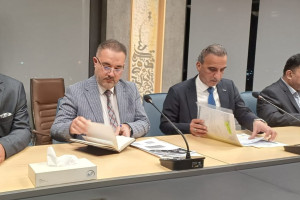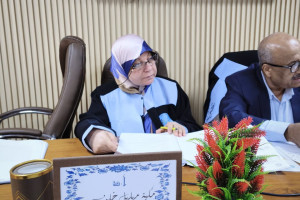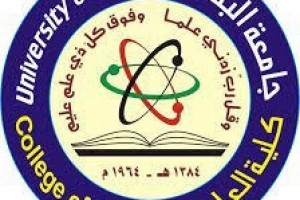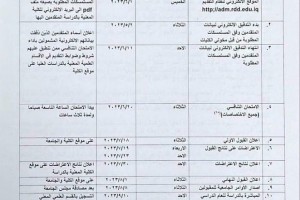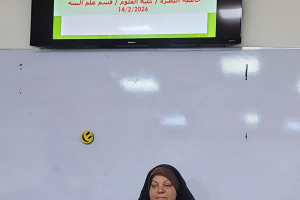
The Department of geology at the college of Science discussed a master thesis entitled predicting the permeability of reservoir rocks using traditional well sensors and nuclear magnetic resonance technology using machine learning and Deep Learning Using Python: a case study of the fatati reservoir in southern Iraq. The researcher (Ali Zuhair Abdullah). The aim of the study is to develop and implement machine learning and deep learning algorithms to estimate the permeability and then compare the actual permeability values (from Fundamental Analysis and NMR records) with the expected values to assess the accuracy and reliability of the developed models. The study included the estimation of permeability using traditional methods based on empirical equations in addition to methods based on machine learning and deep learning techniques. The results showed that the advanced methods of permeability estimation showed high accuracy when compared with Pulp data and nuclear magnetic resonance (NMR) records, while the traditional methods showed low to medium accuracy. The study recommends applying machine learning and deep learning models to carbonate formations to evaluate the accuracy and reliability of these models in predicting permeability across diverse geological contexts.

